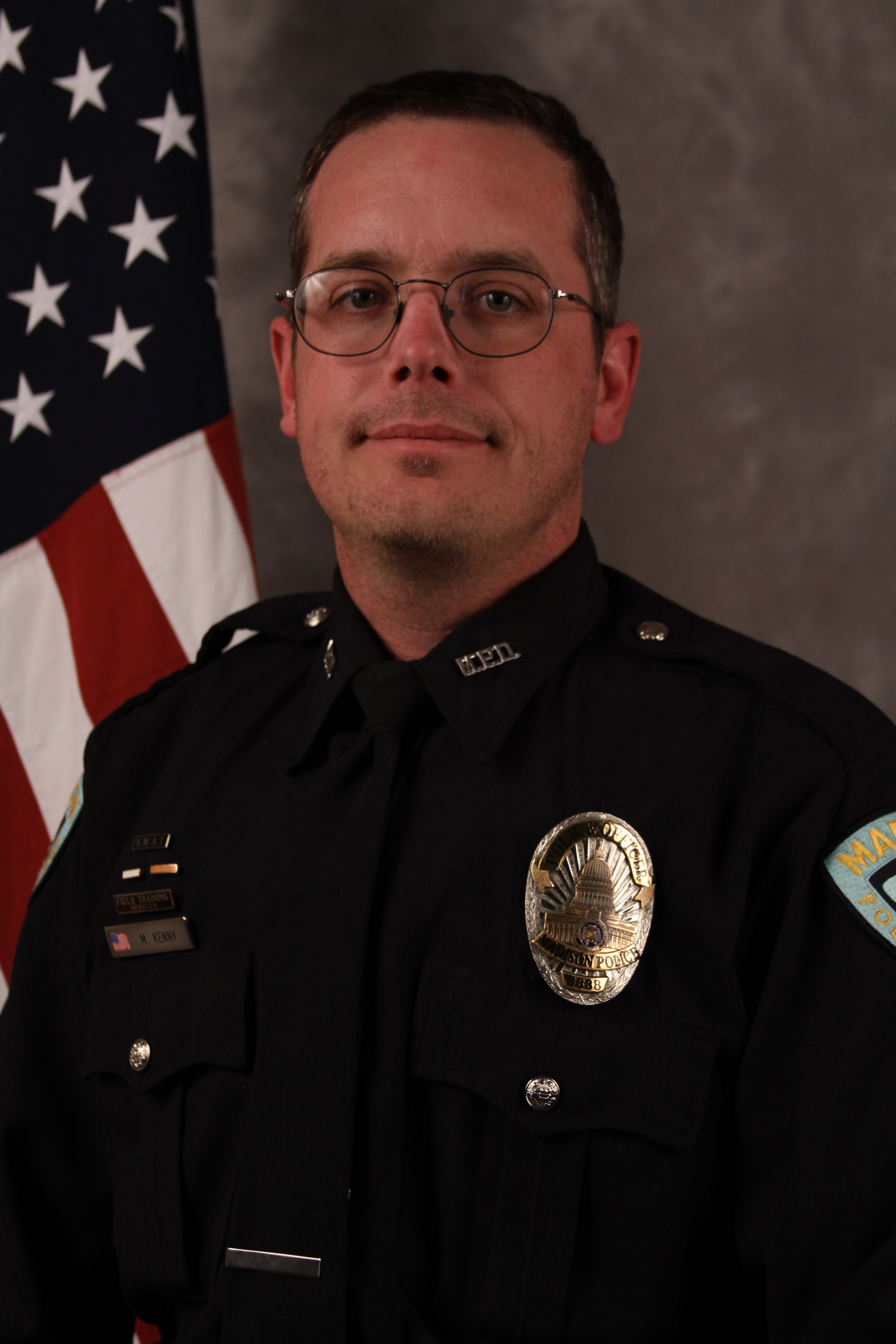For the second time in his career, Madison, Wisconsin, police Officer Matt Kenny won’t face criminal charges for using lethal force.
But the cases and their circumstances are different, very different.
The March death of Tony Robinson, an unarmed biracial 19-year-old, made Madison the latest epicenter of protests of black males killed by white officers.
Eight years ago, it was a different story. Kenny shot and killed a man who pointed a pellet gun at him.
He was exonerated of wrongdoing and received a commendation. The dead man was white.
First shooting
It started as a 911 call. The caller reported a man with a gun on his front porch.
What the dispatcher didn’t know was the man that Ronald Brandon was talking about was himself.
Three officers rushed to the scene, including Kenny. They knew they were facing a potentially life-threatening situation.
They were unaware that Brandon’s ex-wife, Susan, was also calling 911.
“My ex-husband is sitting outside and I think he just called 911,” she said. “He’s got a pellet gun. … He’s drunk.”
As she talked to the dispatcher, the squad cars arrived outside.
“I think he called you because he wants to end his drunkenness,” Brandon said. “I hear the sirens coming. Jesus criminy. It’s not a real gun. I think he wants to be taken away.”
The officers never learned that the weapon Ronald Brandon pointed at them was a pellet gun. The call with that information came 40 seconds before they arrived.
Kenny shot him dead.
Investigators ruled the shooting a “suicide by cop.”
For his handling of the incident, Kenny was awarded the medal of valor, the department’s highest honor.
Second shooting
The March 6 shooting of Robinson set off days of protests in the city.
Because Robinson did not have a weapon, his death spurred memories of other unarmed black men killed by police: Michael Brown in Ferguson, Missouri; Eric Garner in Staten Island, New York.
The incident started when authorities got a call that a black male was yelling and jumping in front of cars, Madison Police Chief Mike Koval said.
When Kenny went to the apartment where the report came from, he heard some commotion and forced his way in, Koval said.
“Once inside the home the subject involved in this incident — the same one allegedly out in traffic and that had battered someone — assaulted my officer,” Koval said.
After that, according to the chief, “The officer did draw his revolver and subsequently shot the subject.”
Kenny was placed on paid administrative leave pending an investigation. On Tuesday, Dane County District Attorney Ismael Ozanne said he would not face criminal charges in the case.
“I conclude that this tragic and unfortunate death was the result of a lawful use of deadly police force and that no charges should be brought against Officer Kenny in the death of Tony Robinson Jr.,” he said.
The decision not to charge Kenny drew swift criticism from several of Robinson’s family members, who briefly spoke with reporters after meeting with the district attorney.
“This is politics, and not justice,” grandmother Sharon Irwin said.
Attorney Jon Loevy said the family’s investigation into the case is continuing, but he declined to answer questions from reporters about it.
“We have more questions than you do,” he said, “and we don’t have answers.”
Two fatal shootings, one career
Concern was a word often used by the police chief as the investigation unfolded.
Concern for his officer. Concern for the community.
Kenny, 45, is a 12-year veteran of the Madison Police Department.
Koval called him “a very conscientious dedicated public servant,” but acknowledged that a second shooting in eight-year’s time is, well, concerning.
“Any loss of life is very tragic,” the chief said. “Twice is concerning for anyone. We are concerned for him and the community.”



